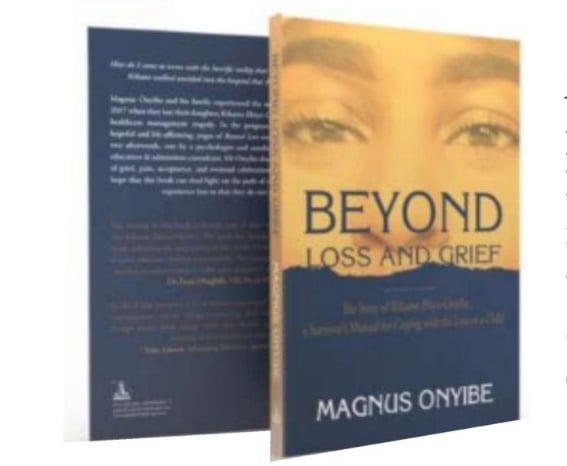Magnus Onyibe, a former Delta state commissioner for information, has released a book that dwells on the subject of dealing with grief arising from the loss of a child.
The book, which comes three years after the author lost his daughter, is titled ‘Beyond Loss and Grief: The Passage of Kikaose Ebiye-Onyibe, A Survivor’s Guide to Handling the Loss of a Child’.
In it, Onyibe sought to leverage his family’s journey through grief to counsel families that have lost a child or those that will go through the experience in the future on how to deal with such a loss.
The book opens with how the author, his wife, and their youngest child journeyed to the University of Birmingham in the UK, where Kikaose was a second-year law student, to retrieve her belonging.
It takes the reader back to the situations that led up to Kikaose’s death in a hospital in Ikoyi, Lagos, as Onyibe recounts the litany of negligence that ultimately led to the demise of his daughter at 18.
While the book dwells mostly on his daughter, Onyibe sought to honour the lives of 20 other young people including children of public servants taken from their families in the prime of their youth.
Stating that the pain from the death of a child doesn’t go away, Onyibe believes that a parent owes it to themselves and their departed child to grieve graciously until they “depart for the great beyond.”
‘‘There is good grief and bad grief. Good grief entails accepting our loss and the emptiness we feel as a consequence but looking to go beyond that point to a place of healing and growth,” he explained.
‘‘Grief, if well-handled can lead to healthy growth after a loss. We can achieve this by contextualizing our loss using the optics of the possibility that the tragedy could have been worse.
“If we lost a child, it could have been two. If we lost two children, it could have been three or four.
“No one prays for such a grievous tragedy as the loss of a child but when it happens, we must find a way to deal with it and continue to live and be productive.
Onyibe also suggested that, besides contextualizing the loss, the aggrieved individuals can heal faster by using the apparatus of family bonding to have themselves serve as support for one another.
Copyright 2024 TheCable. All rights reserved. This material, and other digital content on this website, may not be reproduced, published, broadcast, rewritten or redistributed in whole or in part without prior express written permission from TheCable.
Follow us on twitter @Thecablestyle

